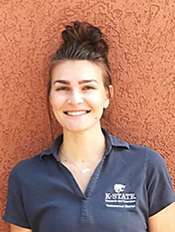
Severe winter weather is not only hard on people but can be a life and death struggle for birds. Though birds also require water and shelter, food is often the resource most lacking during cold weather. Many different bird food mixes are available because various species often prefer different grains. However, there is one seed that has more universal appeal than any other: black oil sunflower. If you are new to the bird-feeding game, make sure there is a high percentage of this seed in your mix. White proso millet is second in popularity and is the favorite of dark-eyed juncos and other sparrows as well as the red-winged blackbird.
As you become more interested in bird feeding, you may want to use more than one feeder to attract specific species of birds. Following is a list of bird species with the grains they prefer.
• Cardinal, evening grosbeak, and most finch species – sunflower seeds, all types.
• Rufous-sided towhee – white proso millet.
• Dark-eyed junco – white and red proso millet, canary seed, finely cracked corn.
• Many sparrow species – white and red proso millet.
• Bluejay – peanut kernels and sunflower seeds of all types.
• Chickadee and tufted titmouse – peanut kernels, oil (black), and black-striped sunflower seeds.
• Red-breasted nuthatch – oil (black) and black-striped sunflower seeds.
• Brown thrasher – hulled and black-striped sunflower seeds.
• Red-winged blackbird – white and red proso millet plus German (golden) millet.
• Mourning dove – oil (black) sunflower seeds, white and red proso plus German (golden)millet.
Extended cold periods can also make water unavailable. A heated birdbath can be a tremendous draw for birds during times when all other water is frozen. Energy use is usually less than what most people expect IF the heater has a built-in thermostat. If you would like more information, Chuck Otte, Agriculture Extension Agent for Geary County has a series of backyard birding guides athttp://gearycountyextension.com/NRMW.htm
Lauren Fick is the Horticulture Extension Agent for the Cottonwood Extension District. If you have questions, she can be contacted by e-mail at lfick@k-state.edu or by phone at 785-628-9430 or 620-793-1910.






